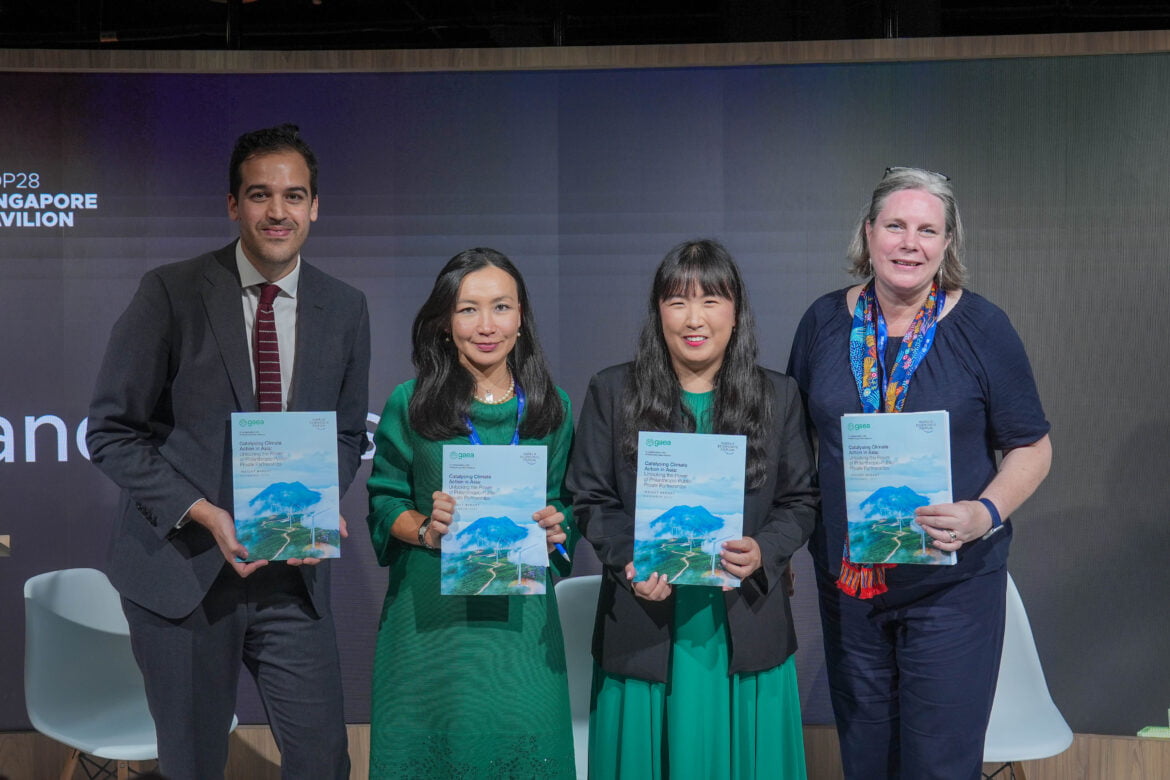The “Catalysing Climate Action in Asia: Unlocking the Power of Philanthropic-Public-Private Partnerships (PPPPs)” report was launched yesterday at the COP28 Singapore Pavilion.
It highlights the “transformative role” of PPPPs in addressing the substantial funding gap in safeguarding and restoring climate and nature in Asia.
The report, the first Asia-focused deliverable of the World Economic Forum’s Giving to Amplify Earth Action (GAEA) initiative, offers 16 real-life case studies and draws insights from over 50 organisations and individuals spanning nine countries, including philanthropic entities with operations in Asia, the finance community, capacity-building and convening institutes and universities.
It reveals that the climate and nature funding gap is not down to a lack of issue awareness but involves challenges including technical understanding, implementable solutions, structured data collection and measurable KPIs.
To transform these challenges into opportunities, the report recommends tri-sector partnerships for climate action, which can act as:
- An alliance builder and convener, to create spaces for different parties to connect and collaborate to feed the need for information and bring diverse voices to the table;
- A capacity builder, to allow the engagement of the appropriate parties to create an enabling policy environment, such as by creating a shared language and mapping systemic data gaps;
- A driver towards dynamic innovation, bringing together diverse actors to make use of their unique capabilities and strengths:
-Philanthropic funds serving as initial investors and bearing the risk to catalyse a project;
-The public sector providing credibility and structure; o The private sector bringing innovative technology and sustaining the project past their initial phase.
The report also finds that a whole ecosystem approach is required to co-create a just and equitable future in Asia, through concrete project ideas and funding for maximum impact.
To enhance the effectiveness of PPPP models and their success in addressing climate and nature challenges, the report identifies four key characteristics of a successful PPPP model:
- Aligning systems thinking strategy and value: Establishing a common understanding and agreement on objectives, outputs and outcomes to be measured and tracked during the project;
- Building win-win-win collaborations at scale: Collaboratively designing, implementing, monitoring and building on progress to meet combined objectives;
- Adopting innovative financing approaches: Creating mutually beneficial financing approaches across sectors – leveraging philanthropic capital to de-risk projects, private capital for commercial viability, and public sector involvement for scaled impact;
- Supporting people-centric capacity and capability building: Developing tools for capacity building and engaging communities to educate, show results, and translate science into accessible actions.
The full report is available at https://www.philanthropyasiaalliance.org/insights#climatephilanthropy.




